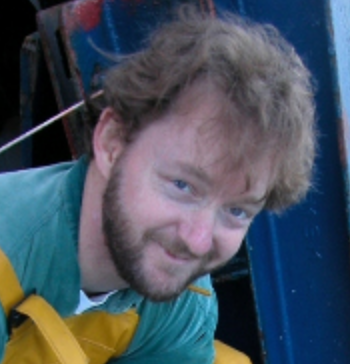Welcome to Through the Gaps, the UK fishing industry's most comprehensive information and image resource. Newlyn is England's largest fish market and where over 50 species are regularly landed from handline, trawl, net, ring net and pot vessels including #MSC Certified #Hake, #Cornish Sardine, handlined bass, pollack and mackerel. Art work, graphics and digital fishing industry images available from stock or on commission.
Friday 9 March 2018
#FishyFriday in Newlyn
There's a stuff breeze blowing in through the fish market this morning - all that will change when the auction shifts to the other end of the market currently undergoing a major rebuild which will include the installation of heavily insulated walls, ceilings and doors...
which will mean less ice will be needed than at present when fish get buried under a thick layer of ice to maintain the required temperature...
so boats like the local netter, Serene Dawn...
beam trawler James RH Stevenson...
and netter, Britannia V will be able to put on an even better display of fish...
when the entire fish market will then become two big chill rooms - with the ability to lower the temperature in one of them significantly should the need arise...
great news for the handline boats who land their fish, mainly mackerel at any time of the day or night throughout the summer months...
meanwhile big ray wings form the beamers...
or netted soles will be at their best...
hopefully their will be a smaller grading machine installed to accurately sort and grade mackerel for the handliners...
outside, the water in the harbour and the sky tells their own story...
low and heavy cloud cover with a fresh breeze scudding across the inner harbour...
milk, bread and fresh meat have been in short supply in nearly all of the supermarkets since the snow fell last week...
compass swung, gear aboard, just waiting for the paperwork to be signed off and the new netter, Amanda if Ladram can get to sea for her maiden voyage...
while it will be a few months yet before this crabber sees its first fish...
drop down the vivier tank...
has there ever been a bilge cleaned out with coming across a pair of these or pliers?..
one inshore trawler and one inshore beam trawler...
it'll be a few months yet before the view form the harbour offices is improved...
for the sake of a comma, we wish.
Thursday 8 March 2018
It’s still uncertain how the UK will deliver a ‘successful’ fisheries policy after Brexit
 |
| Having your fish and eating them - are there enough pickings for all? |
The latest view of Brexit negotiations with regard to the UK Fishing Industry from the LSE.
"Halfway through the Brexit negotiations and delivering on the promises made to voters in the run up to the Brexit vote with regards to fishing remains an incredibly tough task. Richard Barnes, Chris Williams, Bryce Stewart, Bethan O’Leary, Thomas Appleby, and Griffin Carpenter write that ‘success’ will only be possible by working with our EU neighbours, and listening to both stakeholder groups and to the diverse actors within them.
After months of grandstanding over access to waters by UK and EU fishing chiefs, the realisation that the UK will require new fisheries policy post-Brexit seems to have finally set in. The Environment, Food and Rural Affairs Committee has initiated an evidence inquiry, and Defra are running a number of tenders to examine the current UK quota system, conditions on UK registered vessels to land or employ in Britain, and wider options for the future of UK fisheries. The Government’s Fisheries White Paper, precursor to the Fisheries Bill, is expected in early 2018.
Some important forays into fisheries have been made since the Brexit vote. The House of Lords Report set the scene, emphasising the importance of fishing to coastal communities, seafood trade, and cooperation in management. It called for a new legal baseline.
The potential gains in quota and landings based on the British 200 mile exclusive economic zone (EEZ) have been analysed in several studies, although a recent report from the New Economics Foundation calculates that the current distribution of quota holdings means that those gains are highly concentrated. Add the potential for tariff and non-tariff barriers, and half the fleet, which relies on EU exports, is looking at a more difficult future.
A report from the University of York analysed stakeholder priorities post-Brexit, drawing on a wide range of opinions. Encouragingly, all agreed that sustainability of fisheries should take top priority, however, other differences between groups emerged. While the fishing industry urged the need to increase the UK share of quotas and restrict foreign access to the British EEZ, NGOs and academics were more focussed on ensuring the protection of marine ecosystems. Meanwhile the priority of seafood processors (a larger industry than the catching sector) was to guarantee low or zero tariff trade and a viable workforce, given current reliance on non-UK EU workers.
Where there is common ground between different fisheries stakeholders, this must be secured and used to drive cooperation across the sector. Agreement already exists on three key issues, as evident from preliminary inquiries into fisheries. First, a no deal Brexit would be a disaster for UK fisheries. It would deliver a damaging, and in some cases crippling blow to the majority of fishers, and associated businesses, who send fish for export. Second, fisheries must be governed as an integrated part of the marine environment. This requires a focus on a greater number of impacts as well as a greater range of stakeholders. Third, any fisheries policy must secure a sustainable use of the resource. Without this everyone loses out.
Pixabay/Public Domain.
Beyond these three key issues, there is general agreement that we need to develop a management regime that fits the natural, social, and economic conditions of UK fisheries. This entails more work on the following points:
Fish are a public resource
Fundamentally, fish are a public resource. This is reflected in the legal notion of the public right to fish, something that can be traced back to Magna Carta. Fisheries must be managed in the public interest – serving the needs of wider society, including future generations, and not just a select group stakeholders. This principle needs to be translated into action, with new or existing bodies strongly mandated to deliver it. This could have positive implications for questions of allocation, use and benefit. For example, it could be used to open the way for allocation of fishing rights linked to job creation, the delivery of social benefits, or conservation gains.
Creative thinking about sustainability
While the objectives for fisheries are diverse, sustainability must be centre stage. This is often pursued through regulations, but there are also market-based initiatives like the certification of sustainable products that can be leveraged to incentive best practices in fisheries. These schemes do not just have to be industry driven, but can be advanced by States (in partnership with industry).
Fisheries and environmental management must be ‘joined-up’
Integrating fisheries and environmental regulation would align two important and intrinsically linked areas of governance. This is important, especially given the need to better manage externalities from one sector impacting the other. One of the key failings of the Common Fisheries Policy was its failure to directly incorporate environmental legislation. There is some accommodation of environmental and fisheries in the Marine and Coastal Access Act. With exclusive responsibility for all fisheries and marine environmental matters returned to the UK, this Act will need to be reformed to account for additional and changed management responsibilities.
Of paramount importance will be aligning legislation and management properly between the UK Parliament and the devolved administrations. Fisheries and environmental management are currently devolved matters and it is not clear how the end of European competences in these areas will act on the UK constitutional settlement. This will require considerable internal diplomacy.
Any mechanism established to plan for and distribute fishing rights must recognise the need to only permit sustainable exploitation. It is debatable whether there is a need for a further environmental watchdog; it would be better for any administrative bodies to contain internal review process, with better access to judicial review.
Diversity in the sector
Fisheries law must protect and enhance diversity in the sector. The worry is that in its present form, some fleet types – typically small-scale fishing vessels – are particularly at risk. A better deal for inshore fishers (vessels under 10 metres) to ensure quota is not even further concentrated in fewer hands than it is currently.
It also means giving a voice to other sectors, such as recreational fishing. This reflects the public nature of the fishery and harnesses valuable stakeholder contributions.
Finally, it also means ensuring a degree of local autonomy in the management of local fisheries. This allows adaptation to local conditions and the accommodation of relevant environmental and social factors. This could be enhanced by expanding the remit and authority of Inshore Fisheries and Conservation Authorities to 12 nautical miles. This could also be a shrewd response to address some of perceived inequities of foreign fishing around the UK coast that drove the Brexit movement.
The thorny issue of shared stocks
The most difficult decisions will be those that involve shared fish stocks with the EU, of which the UK has many (many more than Iceland, Norway, or other coastal states). In the UK strong calls have been made to use zonal attachment, which grants fishing rights to each country in proportion to the country’s waters where the fish spend the most part of their life-cycle. The EU remains wedded to the principle of relative stability, which is based on historical fishing activity. Neither approach can claim to have legal or political priority.
Whilst relative stability is well-developed within EU law and practice, this will not be binding on the UK after Brexit. Zonal attachment is used in the EU Norway agreement, but would need to be developed for a much wider range of species in any EU-UK agreement. It is also highly vulnerable to changes in stock distribution from factors like climate change – something that has already effected the distribution of key species like cod. What establishing a new principle of zonal attachment would mean for devolved administrations seeking their ‘fair share’ must also be handled with care.
Ensuring the interests of the processing sector
The dependence of the processing sector on overseas markets means that fisheries cannot be viewed separately from wider trade issues. The UK is highly dependent upon the EU market and new markets will not simply spring into being after Brexit because of the start-up costs, logistics or uncertain trading regime. As a large portion of fish is sold fresh, the seafood industry is particularly prone to a ‘gravity model’ of trade.
Counting down and cooperation
We are now more than halfway through the countdown to Brexit. However, the task ahead to design a marine management regime that delivers sustainability, equity, and on the promises made to the electorate in the run up to the Brexit vote, remains an incredibly tough one. How to deliver a ‘successful’ UK fisheries and marine environmental policy under Brexit is uncertain. But what is known, is that ‘success’ will only be possible by working with our EU neighbours, listening not only to broad stakeholder groups but also to the diverse actors within them, and focussing on the end goal of sustainable, equitable, and integrated marine management."
About the Authors
 Richard Barnes is Professor at the Faculty of Business, Law and Politics, University of Hull.
Richard Barnes is Professor at the Faculty of Business, Law and Politics, University of Hull. Bryce Beukers-Stewart is Lecturer at the University of York.
Bryce Beukers-Stewart is Lecturer at the University of York. Bethan O’Leary is Research Associate at the University of York
Bethan O’Leary is Research Associate at the University of York Griffin Carpenter is Senior Researcher at the New Economics Foundation.
Griffin Carpenter is Senior Researcher at the New Economics Foundation.UK Fishery Policy debate Westminster Hall, 28/02/2018
Will fishing get sold down the line again?
Last time it was sheep, this time it could be the Financial Services sector - worth £180 billion.
On February 28th, MPs in Westminster Hall (all 25 of them) debated the UK Fishery Policy in the light of Brexit and our withdrawal from the EU and, in time, the CFP. Above is the Hansard transcript of the debate.
Con MP Jacob Rees-Mogg, if nothing else a consummate politician, mentioned fishing on this week's a Week in Westminster on BBC R4 - he knows that it is a totemic issue for the public as it is so closely associated with the Brexiteer's mantra, "take back control' which became a byline during and after the referendum back in 2016. Even though, at times, having triggered Article 50 it seems we have actually ceded control to the other 27 EU states across the Channel.
By way of interest:
Records of parliamentary debate go back to 1803, however, the Hansard of today, a comprehensive account of every speech, began in 1909 when Parliament took over the publication and established its own staff of official Hansard reporters. At the same time the decision was made to publish debates of the two houses in separate volumes, and to change the front cover from orange-red to light blue. A larger page format was introduced with new technology in 1980.
Hansard is not a word-for-word transcript of debates in Parliament. Its terms of reference are those set by a House of Commons Select Committee in 1893, as being a report
...which, though not strictly verbatim, is substantially the verbatim report with repetitions and redundancies omitted and with obvious mistakes (including grammatical mistakes) corrected, but which, on the other hand, leaves out nothing that adds to the meaning of the speech or illustrates the argument.[6]
Wednesday 7 March 2018
Plenty of fish on the mid-week market in Newlyn.
Amanda of Ladram, all set for swinging the compass this morning...
as she and the remainder of the netting fleet prepare to set sail for the neap tide...
"by the light of the silvery moon"...
there's still plenty of black gold coming ashore with the beam trawlers...
along with the odd conger...
ling...
brill...
and fellow, quality flat fish, turbot...
a specimen blackjack or coley or saithe...
and a perfect cuttlefish from Tom...
and a specimen brill that any sea-angler would be well chuffed to land...
red mullet...
and a pair of red bream were next on the sale list...
along with these prize pollack...
with most flatfish, there's two sides to every story...
the inshore trawlers are still hauling good lifts of whiting aboard...
while the Shiralee sneaked a few JDs from under young...
Roger Nowell's nose on the Imogen III...
who pitched up with a good run of the omni-present haddock for his 24 hour trip...
as ever, the New Venture made another good landing of good sized ray...
along with a handful of good-sized John Dory...
thinner on the grounds are the late winter mackerel...
overall though, the market was awash with boxes of fish...
including this matching pair...
cuttles don't come much blacker then these...
it takes two to tango...
as the tubs of cuttles are hauled away to the waiting transport...
on a much finer morning...
which sees the Amanda of Ladram...
now with a full compliment of hake nets aboard...
fellow Padstownian, Sid will be sailing today with the Karen of Ladram...
closely followed by perennial visitor from Belgium, the beam trawler Francine...
who with her starboard side beam still raised...
still has a few hours serious maintenance to do to get the chain mat back together...
a flashback from the past, the name Ben Loyal has returned once again...
she look similar to the local boat that fished for tuna after ending her netting career...
young Roger Nowell's will be counting the days down to the Dory season...
though in her day she was built for chasing another luxury fish from the seabed - there's a clue in the shield cast in steel on her bow...
the sun is just about to break the dawn...
so it back-lights the Nowell's beamer as the guys get to grips checking the trawl and chain mat...
it's good to see that the Fishing for Litter scheme is embraced by boats from all over the EU, here the Belgian beamer Francine has done her bit for the seabed environment...
as the gulls begin to stir in the harbour...
at last the net is aboard the new sardine boat Vesta...
as the sun rises heavy clouds drift across the bay...
causing the gulls to take flight...
heavy showers head east to cover the Lizard...
at rest, the Scillonian III wiats for the final touches to be completed for her annual makeover...
on the kind of morning anyone travelling on her would be so grateful for...
currently, the boat in the dry dock is hidden below the parapet!
Subscribe to:
Posts (Atom)




































































